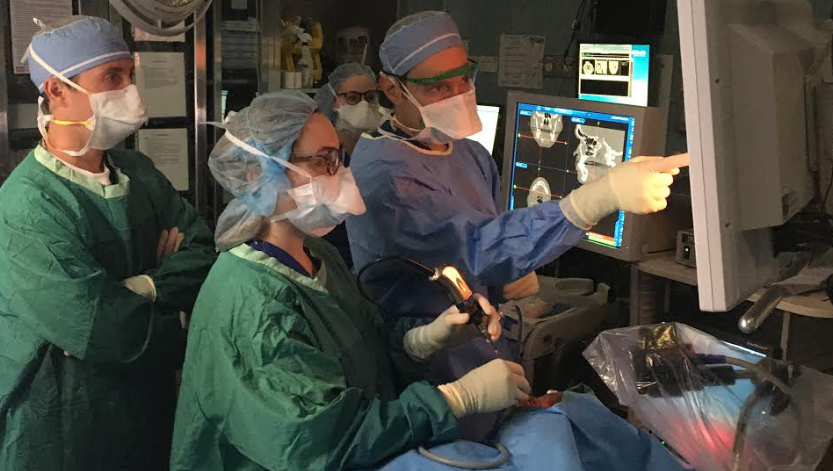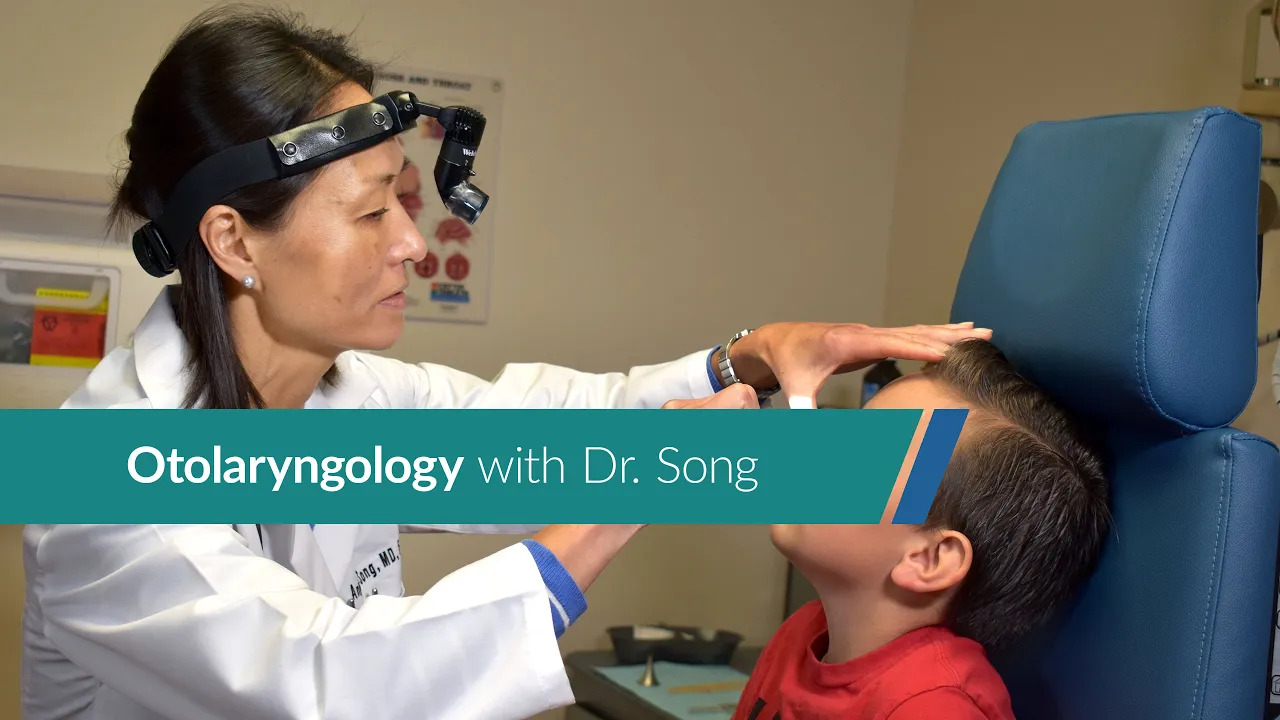The Otolaryngologist’s Role in Diagnosing Complex Head and Neck Conditions
Wiki Article
Checking out the Area of Otolaryngology: What to Anticipate When You Seek Advice From an ENT
Otolaryngology, typically referred to as ENT, encompasses the diagnosis and therapy of throat, ear, and nose conditions. Hearing. For those experiencing related problems, speaking with an ENT professional can supply clearness and alleviation. Comprehending what to anticipate throughout such examinations is vital for effective interaction and care. This summary will describe vital facets of the ENT experience, including common factors for brows through and the procedures associated with medical diagnosis and therapyRecognizing Otolaryngology: An Overview
Otolaryngology, typically referred to as ENT (Ear, throat, and nose) medicine, is a specialized branch of medicine that concentrates on the medical diagnosis and treatment of problems affecting these critical locations of the body. This field includes a variety of conditions, including those pertaining to hearing, equilibrium, breathing feature, and speech. Otolaryngologists are trained to handle both medical and medical treatments, making use of advanced techniques and innovations. Their proficiency extends beyond traditional ailments, addressing problems such as allergic reactions, sinus infections, and hearing loss. Additionally, they play an essential duty in the management of head and neck cancers, providing complete care tailored to specific client demands. Overall, otolaryngology remains vital for preserving wellness and quality of life in damaged individuals.Common Factors to See an ENT Expert
Numerous people look for the competence of an ENT expert for a variety of factors, mirroring the diverse nature of conditions that impact the ear, throat, and nose. Typical problems consist of chronic sinus problems, which commonly causes relentless nasal blockage and facial pain. Allergies and their linked signs and symptoms, such as itching and sneezing, additionally prompt sees to these specialists. Hearing loss, whether gradual or abrupt, is an additional substantial factor for assessment. Additionally, individuals may seek assessment for throat conditions, including persistent hoarseness or ingesting problems. Rest apnea, defined by cut off breathing throughout sleep, is regularly resolved by ENT professionals. Each of these problems highlights the relevance of specialized care in managing intricate ENT-related health and wellness issues.Preparing for Your ENT Visit
When getting ready for an ENT visit, it is necessary to collect relevant details and think about any type of specific issues. Patients need to compile a detailed medical background, consisting of previous ear, nose, or throat issues, surgical procedures, and present drugs. Documenting symptoms-- such as extent, duration, and frequency-- can offer important insights for the ENT specialist. Furthermore, individuals must prepare a list of inquiries they desire to ask, ensuring that all concerns are attended to throughout the see. Bringing along any kind of appropriate clinical documents or examination outcomes can better assist the ENT in understanding the individual's problem. Ultimately, clients must confirm their consultation information, consisting of date, area, and time, to lessen any type of final confusion. Correct preparation can enhance the performance of the consultation and cause much better outcomes.
What to Expect During the Consultation
As the consultation begins, the client can anticipate to take part in a detailed discussion with the ENT expert about their signs and symptoms and clinical background. The professional will certainly make inquiries about the duration, frequency, and extent of symptoms such as hearing loss, nasal congestion, or aching throat. In addition, the individual's previous medical conditions, medications, and any type of pertinent family history will certainly be assessed, helping the specialist in forming a complete understanding of the patient's wellness. The ENT may additionally inquire about way of life elements, such as exposure to allergens or irritants. This open dialogue develops a foundation for the consultation, making certain that the person's concerns are dealt with and establishing the stage for any needed analyses or referrals for therapy.Analysis Examinations and Treatments in Otolaryngology
A series of diagnostic tests and treatments are vital in otolaryngology to properly assess and detect conditions impacting the throat, ear, and nose. Common examinations include audiometry, which gauges hearing feature, and tympanometry, examining center ear pressure. Nasal endoscopy permits visualization of the nasal flows and sinuses, while laryngoscopy analyzes the throat and singing cables. Imaging techniques, such as CT scans and MRIs, give comprehensive views of head and neck frameworks. Allergy screening may additionally be carried out to identify triggers for sinus or breathing issues. These analysis tools make it possible for ENT professionals to establish a comprehensive understanding of individuals' problems, guaranteeing customized and reliable administration strategies. Correct diagnosis is vital for successful therapy results in otolaryngology.Treatment Options Provided by ENT Specialists
ENT professionals use a variety of treatment alternatives customized to resolve specific conditions impacting the nose, throat, and ear. These treatments vary from conservative strategies, such as medication and way of life alterations, to more invasive procedures. Allergies may be taken care of with antihistamines or immunotherapy, while persistent sinusitis may need nasal corticosteroids or sinus surgical treatment. For hearing loss, ENT specialists typically suggest listening devices or surgical treatments like cochlear implants. In situations of throat conditions, choices can consist of speech treatment or operations to remove blockages. In addition, they may supply assistance for handling rest apnea, including the use of CPAP devices or surgical treatments. Overall, the goal is to enhance clients' quality of life via customized care and effective therapy techniques.When to Seek Follow-Up Treatment With an ENT
Recognizing when to look for follow-up care with an ENT professional is crucial for taking care of ongoing signs and symptoms or difficulties associated with nose, throat, and ear problems (Sinus). Individuals ought to take into consideration scheduling a follow-up visit if signs and symptoms continue regardless of initial therapy, such as chronic ear discomfort, nasal congestion, or throat pain. Changes in hearing, balance concerns, or unusual nasal discharge may additionally require more assessment. In addition, if a person experiences side impacts from recommended medicines or has actually gone through a surgery, follow-up treatment is very important to check healing and deal with any kind of problems. Prompt assessments can guarantee effective administration of conditions, stop possible problems, and supply tranquility of mind concerning one's health. Seeking follow-up care promotes positive wellness monitoring in otolaryngologyFrequently Asked Questions
What Credentials Should I Try to find in an ENT Professional?
When seeking an ENT specialist, one should seek board accreditation, relevant experience, and strong individual testimonials. Furthermore, efficient interaction abilities and a compassionate method can substantially boost the general treatment experience.How Do I Choose the Right ENT for My Requirements?
Selecting the best ENT expert involves assessing their qualifications, experience, and person testimonials. It is important to ponder their interaction style and method to therapy, ensuring they straighten with the person's certain health website and wellness requirements and preferences.Exist Any Risks Related To ENT Procedures?
The threats related to ENT treatments might consist of infection, blood loss, anesthesia issues, and potential damages to surrounding structures. People ought to review these dangers with their physician to comprehend individual concerns and assurance educated decisions.Just How Can I Manage Anxiety Prior To My ENT Appointment?
To handle anxiety prior to a consultation, people can practice deep breathing exercises, picture favorable end results, prepare concerns in advancement, and look for assistance from close friends or household, cultivating a feeling of confidence and calmness.
What Should I Do if I Experience Adverse Effects From Treatment?
If adverse effects from therapy take place, the person ought to promptly report them to their doctor. Voice. Changes to therapy or additional treatments might be required to guarantee safety and effectiveness in managing their problem. As the consultation begins, the person can expect to involve in a thorough conversation with the ENT specialist regarding their symptoms and clinical background. These diagnostic devices enable ENT experts to establish a detailed understanding of patients' conditions, making certain tailored and reliable management strategies. ENT specialists use a variety of therapy choices customized to attend to particular conditions influencing the throat, nose, and ear. When seeking an ENT expert, one ought to look for board certification, appropriate experience, and solid patient evaluations. Picking the best ENT specialist involves evaluating their certifications, experience, and patient testimonialsReport this wiki page